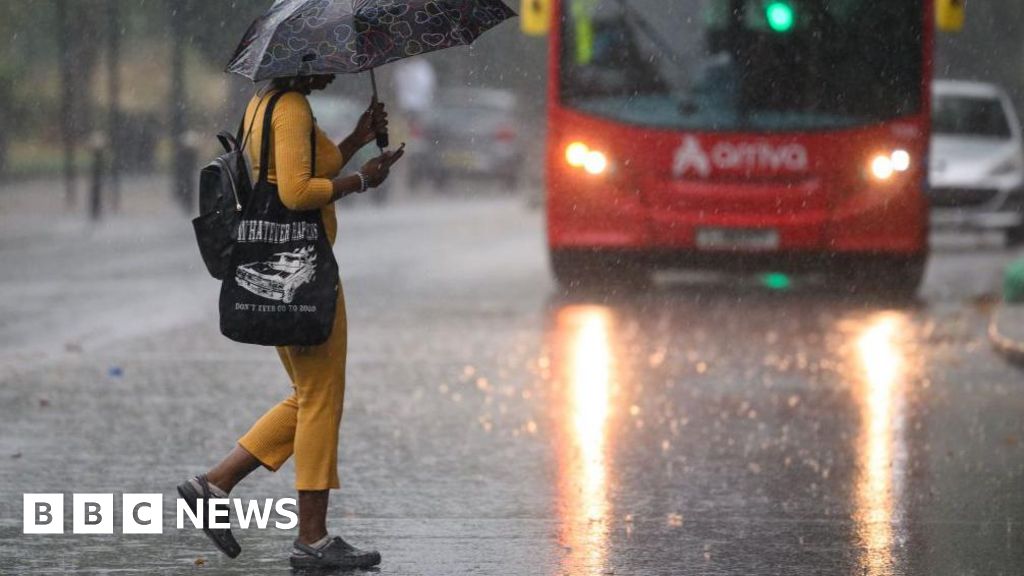ARTICLE AD BOX

 Getty Images
Getty Images
Energy firms will be forced to offer customers tariffs with no standing charges, under a proposed shake-up of bills by regulator Ofgem.
All households pay the fixed daily charges covering the costs of connecting to a supply, but there have been widespread calls for these fees to be scrapped.
Ofgem is proposing suppliers offer one price-capped tariff that includes the standing charge, and another that loads these costs on energy usage charges instead. Customers could choose which suits them best.
The planned overhaul, for next winter, also raises the possibility of some unpaid bills that built up during a recent high-price crisis to be written off.
Standing charge anger
When Ofgem asked for the public's views on standing charges it received an unprecedented response of 30,000 submissions.
The majority were against standing charges - fixed fees, typically totalling more than £300 a year, that are paid irrespective of how much energy households use.
Under Ofgem's price cap, standing charges have risen by 43% since 2019.
Those with low energy usage, such as people who live alone, argued that even if they further reduced how much gas and electricity they used, they saw little difference in their bills. They wanted more control over their bills.
However, those with high energy needs could see a big rise in bills were these charges to instead be included in the price of each unit of energy used. It would mean higher bills for people with disabilities who have to charge up specialist equipment.
"We hear from people who've turned off their heating, ration their hot water, and avoid charging essential mobility devices, yet still feel like they're fighting a losing battle with their energy bills," said Alex Belsham-Harris, from Citizens Advice.
Ofgem's proposed solution is to tell energy firms to make a dual pricing offer - one with, and one without, a standing charge. Both would fall under the existing price cap system.
Such tariffs already exist, but only from a handful of suppliers and are not available to everyone.


Joanne Wilkinson says the energy bill is depressing
Customers would need to make a choice, but some campaigners want those with low energy use to automatically move onto a standing charge-free deal.
"The problem with presenting a choice of price caps is many vulnerable people won't make that choice," said Martin Lewis, founder of Money Saving Expert.
One of those who could benefit would be Joanne Wilkinson.
"I try not to look [at the standing charges] because it's depressing," she said.
She said she had enough to worry about dealing with baby daughter Adeline, but noticed how quickly the meter goes through the money that was loaded onto it.
Lower wages in the north of England made it even harder for parents like her to afford energy bills, she said, especially as she was still on maternity leave.
But Energy UK, which represents suppliers, said that such a fundamental proposed change needed careful consideration.
"It would be a major undertaking to make all customers aware of this change and to ensure they then choose the best option for their circumstances," said the trade body's chief executive, Dhara Vyas.
The proposals also fail to deal with the variation of standing charges in different parts of the UK, with billpayers in some areas paying considerably more. Ofgem intends to make that part of a wider, separate inquiry.
Debt repayment plan
The amount of money owed to suppliers by customers has nearly doubled in two years, now totalling about £3.8bn.
The regulator is also setting out a plan for next winter that would deal with some of this debt, built up during a period of high prices, that has little chance of being repaid.
It is planning a "debt guarantee" to improve the standard of service offered by suppliers supporting customers in debt, which it said would give households "consistent, compassionate and tailored support".
Suppliers could also be required to accept debt repayment offers from reputable third parties such as debt advice agencies or consumer organisations.
One option for energy crisis arrears could be debt-matching - that would see customers repay some of the debt, with energy firms writing off an equal amount.
Some of these costs are already covered in an allowance, but could fall on all customers to finance through higher bills.

 6 months ago
26
6 months ago
26








 English (US) ·
English (US) ·